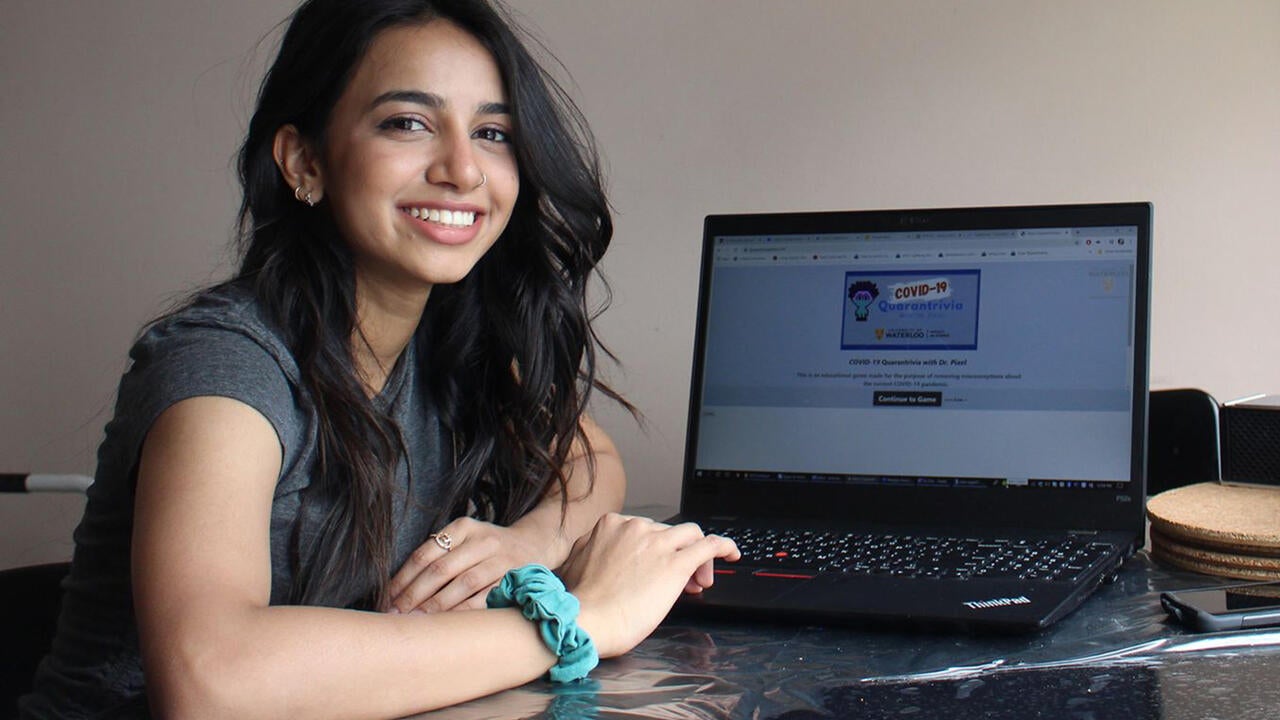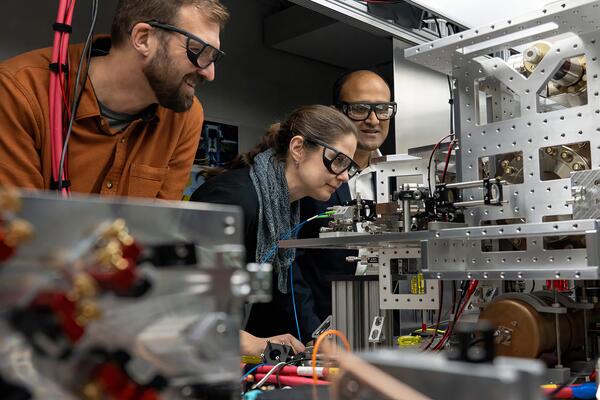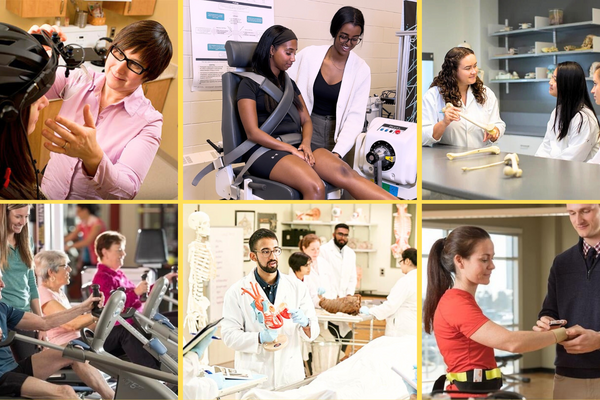
Inoculating against misinformation
Undergraduate Science student develops game to fight COVID-19 misinformation

Undergraduate Science student develops game to fight COVID-19 misinformation
By Katharine Tuerke Faculty of ScienceCOVID-19 overwhelmed health-care systems around the world and left a devastating death toll in its path. The pandemic struck fear and panic in everyone. Knowing very little about the new virus and with no cure, COVID-19 encouraged the rapid spread of misinformation.
Ridhi Patel, a third-year Honours Science student, noticed the rapid spread of misinformation among her friends and community. She empathized with people who didn’t know where to look for reliable information or just didn’t have the time to keep up with the latest updates as everyone was adjusting to the social, work and lifestyle changes due to COVID-19.
“Within a few days of coming back home, I had started to realize the panic that the heaps of misinformation had been causing within my own community,” Patel says. “I wanted to contribute to making this situation better in any way I could.”
A few years earlier, Patel had created a game for her organic chemistry course about the different types of organic compound reactions. The game was well received and helped users learn the material, and as a result, her group won best project that semester.
As a gamer herself, she thought using a game would be a fun and educational tool for people of all ages to learn about COVID-19 and clarify any misconceptions about it.
“With the time I now had, I wanted to create a more fun and relaxed approach to educating people on the COVID-19 pandemic and emphasize why it is so important for us to follow the advice offered by public health officers and the likes.”
She wanted to partner with a faculty member to ensure the information was accurate and for help with the format and wording of questions. Jozef Nissimov, professor of biology and an environmental microbiologist/aquatic virus ecologist, was excited by the idea and immediately jumped on board.
Patel didn’t have the coding skills to create the game she had envisioned so she found a collaborator to work on the project but unfortunately, they decided to drop the project. So, with her basic coding skills and graphic design experience, she created the graphics, animations, web-app/webpage and contents herself.
“I am thankful for encountering this challenge, as I learned that passion truly does go a long way and that there is always a way if there is a will,” Patel says.
By combining her passion and skills with Nissimov’s guidance and mentorship, she developed the game COVID-19 Quarantrivia with Dr. Pixel.
“We hope to create a safer environment for everyone during this pandemic and to bring people together as one against the disease and not each other.”
The game highlights, what COVID-19 is, those that can be affected, social distancing practices, factors affecting the spread of infection/disease, hygiene, symptoms and common conspiracy theories.
Players go on a journey to help Dr. Pixel destroy COVID-19 viruses and save Pixel World. The game has three phases — protect Little Pixel, search and eliminate viral particles and keep the virus away forever. Each phase consists of 15 multiple-choice questions. If players get more than three questions wrong in the entire game, they are directed to a ‘links and references’ section to further educate themselves before being encouraged to play the game again to advance.
There is an additional “Myth VS Reality Bonus Round.” This short, 20-question level challenges the user to tell the difference between known facts about the COVID-19 pandemic and popular misconceptions. The goal is to help players learn about the COVID-19 virus, using information and advice from the Centers for Disease Control and Prevention (CDC) and the World Health Organization (WHO).
“I am hoping that any person, regardless of their age, can use this game to pass the time in a productive manner while gaining knowledge,” Patel says. “The game is specifically designed to be web-based and not an application, so anyone with a decent internet connection can use it on their devices, globally.”
Patel and Nissimov will continue to update the game to reflect the changes in the COVID-19 pandemic. The next iteration of the game will address the various stages of reopening and how to protect oneself.
“The thought to be able to help even a handful of people through this game really excites me, and this excitement and support from people with similar goals are what has really motivated me to work on this game to the best of my ability, despite any challenges.”

Read more
Waterloo Pharmacy alum spearheads outpatient oncology clinic for patients undergoing cancer treatment at WRHN

Read more
And a new model for how quantum research is shared — opening doors for the next generation of scientists and entrepreneurs

Read more
From optometry and pharmacy to public health and therapeutics, Waterloo alumni are powering Canada’s health care sector
The University of Waterloo acknowledges that much of our work takes place on the traditional territory of the Neutral, Anishinaabeg, and Haudenosaunee peoples. Our main campus is situated on the Haldimand Tract, the land granted to the Six Nations that includes six miles on each side of the Grand River. Our active work toward reconciliation takes place across our campuses through research, learning, teaching, and community building, and is co-ordinated within the Office of Indigenous Relations.